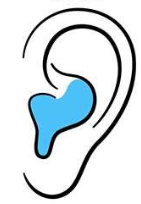Blurry vision is in the distance.
What is nearsighted?
What is a hearing test?
The three types of supplemental plans sold by the Ancillary Department.
What are Accident, Critical Illness and Cancer?
The plan will not pay for any loss caused by these unless it begins more than 12 months after the effective date of coverage.
What are Pre-Existing Conditions?
True or False: Cancer plans pay a one time lump sum payment to beneficiaries.
What is False: There is a payment made at diagnosis, but there are payments for continuing care as well.
Photo-senstative lenses. Most plans will usually provide a discount, but not coverage.
What are Transition Lenses?
Not offered as stand alone plan at SelectQuote.
What are Hearing Plans?
These two types of supplemental policies are available to individuals aged 18-69.
What are Critical Illness and Cancer?
Coverage is ________ ___________; as long as premiums are paid, coverage is issues.
What is Guaranteed Renewable?
Medicaid clients are not eligible for these plans.
What are Accident, Critical Illness and Cancer.
Correction for your distance at the top of the lens and correction for up close vision at the bottom.
What are Bifocals?
Electronic device a person wears in or behind the ear to make some sounds louder.
What is a hearing aid?
Which supplemental policies are paid directly to the client?
What is 'All' of them (Accident, Critical Illness and Cancer).
The attained age, in most states, clients are eligible to enroll.
What is until their 70th birthday.
Some vision plans may refer to this as a deductible.
What is a Materials Copay
Contains multiple prescriptions in one lens with no lines.
What are Progressive Lenses.
True or False: All hearing plans allow a client to get hearing aids from whichever vendor they chose.
This supplemental policy's benefit is a lump sum payment when a client is diagnosed with a specific illness.
What is Critical Illness?
Also known as the Lump Sum Payout. Ranges from 10k - 25k.
What is the Face Amount?
True or False: The most a hearing aid can cost is 4k per ear.
What is False: Some hearing aids can cost as much at 6k for each ear.
Used to correct severe farsightedness using very high power. Think of them as two lenses stacked on top of each other.
What are Lenticular Lenses?
What kind of ITE hearing aid is pictured below:

What is a low-profile hearing aid?
True or False: A client cannot receive the benefits from an Accident policy if they are injured at work and are covered by Workman's Compensation.
What is False. The client can still collect from an accident policy even when the client is covered by Worker's Comp.
True or False: Medicaid client are eligible for Critical Illness Plans.
What is False. We do not sell these plans as the lump sum payouts could potentially affect their state Medicaid benefits.
True or False: In most cases, you can use your vision benefits to get both contacts and lens/frames each benefit year.
What is False: In most cases you can get either contact lenses or frames/lens in one benefit year.